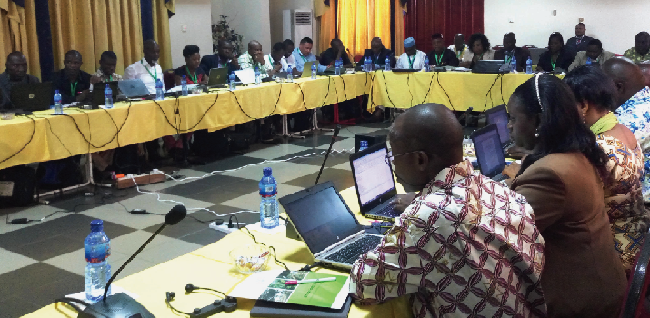
Workshop on sustainable forest management underway in Accra
Representatives of 17 countries drawn from West and Central Africa have converged on Accra for a five-day workshop aimed at building their capacities towards strengthening sustainable forest management in Africa.
The workshop on forest certification aims to contribute to the development of the capacity of African institutions to drive the forestry agenda at the national and regional levels towards sustainable forest management and forest development.
Forest certification is the process of inspecting particular forests or woodlands to ensure that they are being managed according to an agreed set of standards.
Forest certification
At the opening of the workshop yesterday, the Executive Secretary of the Africa Forest Forum (AFF), Professor Godwin Kowero, said the increasing demand by consumer countries for forest products that were derived from responsibly managed forests meant that increased focus on forest certification would enhance access to international markets and increased national revenues.
“In particular, forest certification offers a management framework that provides for ecological sustainability, economic viability and social inclusion simultaneously. Consequently, it offers the opportunity to harness market forces, public opinion and civil society in support of sustainable forest management,” he added.
Prof. Kowero said studies by the AFF had revealed that Africa was yet to benefit from forest certification and attributed that to insufficient attention accorded the issue by stakeholders.
At best, he said, forest certification on the continent could be described as scattered and uncoordinated, adding “Out of all the forests certified globally, Africa accounts for about four per cent and only in 10 countries.”
Constraints
He enumerated factors constraining the successful implementation of FC in Africa to include inadequate or lack of enabling conditions and policy or legislation, as well as capacity gaps, including human, financial and physical resources and technical capability or skills.
The Director of the Forest Research Institute of Ghana (FORIG), Dr Daniel Ofori, said forest certification offered multiple economic, environmental and social benefits and opportunities that Africa and for that matter Ghana stood to achieve through its increased implementation.
These include greater access to premium timber markets, economic benefits for local communities, higher recovery of national revenues where payment of forest taxes are being avoided and enhancement of high conservation value forests.
“Forest certification, therefore, makes significant contribution to raising awareness of the value for responsible use and management of forests,” he stressed.
Writer’s email:
